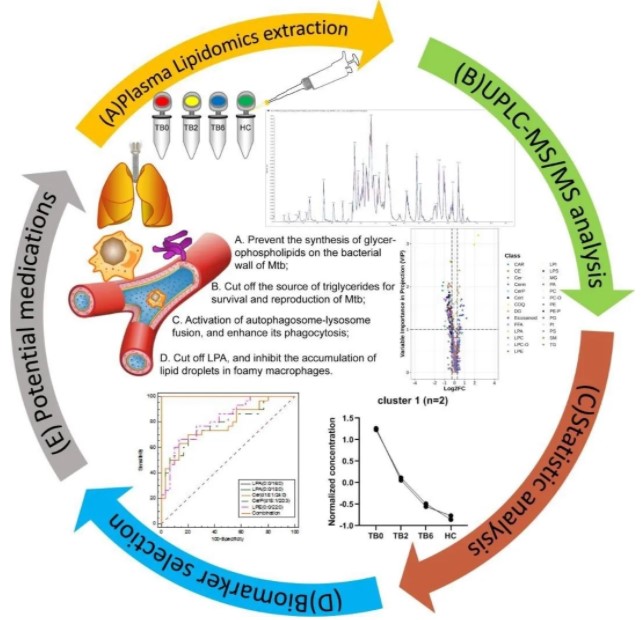Research team discover new targets of anti-tuberculosis medicine (Signal Transduction and Targeted Therapy)
Tuberculosis (TB) is a pulmonary infectious disease caused by Mycobacterium (Mtb). According to the latest WHO report , there were more than 10 million new cases and 1.2 million deaths worldwide in 2019 [1]. China is a country with a high burden of TB. effective prevention and control of TB in early stage is of great importance. However, current TB diagnosis methods and efficiency of medicine effects are far from satisfactory
To identified ideal biomarkers for efficacy evaluation of TB and create a novel medical targets for the treatment of TB., the research team led by LI Jicheng, School of Medicine, Zhejiang University published a research article entitled Novel therapeutic evaluation biomarkers of lipid metabolism targets in uncomplicated pulmonary tuberculosis patients . There findings is published on Signal Transduction and Targeted Therapy, January 18, 2021..

Using UPLC-MS/MS to analyze the plasma lipidome of the patients with TB, the researchers found that the metabolism of glycerophospholipids and sphingolipids, and autophagy metabolic pathways were abnormal, and this abnormality would gradually return to the normal level with the progress of anti-TB treatment. This finding indicates that the host plasma lipids are an important energy source for the metabolism of Mtb, and inhibiting the key lipid metabolic pathway is a new target of anti-TB treatment.
Furthermore, to confirm t the biomarkers for TB, the researchers found that LPA (0:0/16:0) and LPA (0:0/18:0) have great potential in the early diagnosis (sensitivity and specificity are all 100%) and efficacy evaluation (sensitivity and specificity are all 100%). In, this study is the first to discover the characteristics of host lipid metabolism changes during anti-TB treatment, and identify new medication targets for TB.
Bystudying the lipid biomarker of TB efficacy evaluation, the researchers also found a new pathway of lipid metabolism of Mtb, and proposed a new therapeutic strategy for the treatment of TB, that is, cutting off the energy metabolism pathway to starve bacteria in the treatment of TB, which provided an experimental basis for the development of novel anti-TB drugs.
Reference
[1] Global tuberculosis report, in World Health Organization. (2019).
Original link: https://DOI: 10.1038/s41392-020-00427-w.

